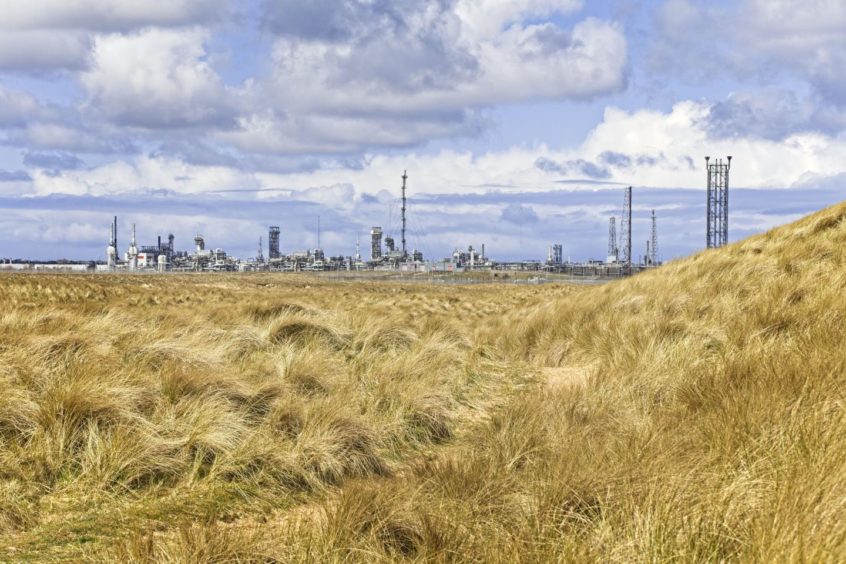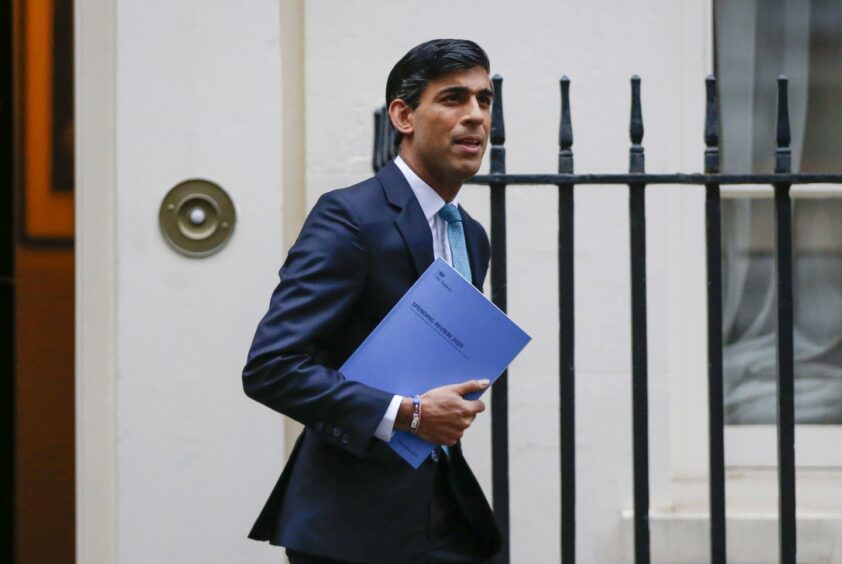
Rishi Sunak has been criticised for failing to announce specific backing for key transition technologies during his Spring Statement.
Nick Cooper, chief executive of low carbon technology firm Storegga, believes industry will be “largely disappointed” by the lack of focus on carbon capture and storage (CCS) and hydrogen.
Policy Adviser for Aberdeen and Grampian Chamber of Commerce (AGCC) Fergus Mutch also lamented the “scant reference” to how the North Sea will deliver the energy transition.
Many in the oil and gas sector will sleep easier after the Chancellor decided not to heed calls for a windfall tax on the profits of producers.
There were serious concerns that the measure could have reduced the industry’s ability to invest in clean energy sources.
Beyond that there was little mention of the North Sea in Mr Sunak’s speech, a surprise to many given the current emphasis on energy security.
It was also thought the Chancellor may share details about plans to progress the Scottish Cluster CCS project after it missed out on backing last year.
The scheme is expected to be in the ‘Track 2’ sequencing process after being picked as the reserve in the first phase.
Mr Cooper said: “The UK energy industry will be largely disappointed by today’s announcement: there was no rabbit out of the hat for carbon capture and storage and hydrogen as hoped. We have an opportunity to decarbonise the British energy industry, whilst also securing supply. But today’s statement does not give us the broader decarbonisation roll out we so desperately need.
“Successive governments of different flavours have failed to set out a long-term vision for the decarbonisation industry. The North Sea has been in decline for years, and is often seen as a dirty piece of our hydrocarbon producing past we would rather forget.
“But the North Sea presents huge opportunity. An opportunity for a new industrial revolution, sucking up the smog of the past and generating clean energy. The government sticks its toe in the North Sea decarbonisation opportunity but is yet to dive in. Offshore wind was a clear success but we failed to retain the benefits by giving away the supply chain.”
He also stressed that investors “around the world” are ready to spend their cash in the UK but are being held back by “government procurement processes” and slow progress on financial frameworks.
Storegga is the lead developer of the Acorn CCS project, which is based at the St Fergus gas plant, Aberdeenshire.
A key part of the Scottish Cluster, the scheme plans to repurpose oil and gas infrastructure to store carbon under the North Sea.
UK Government opted not to progress Acorn as a ‘Track 1’ project, to the surprise and anger of many, meaning it will have to compete in the second tranch.
AGGC, one of the group’s seeking a concrete timeline for ‘Track 2’ of the CCS process, also described the Spring Statement as “fairly underwhelming”.
Mr Mutch said: “Scotland’s energy sector will breathe a sigh of relief that it has avoided a windfall tax which was always a blunt instrument, likely to have hampered investment in renewables and disproportionately damaged our regional economy.
“Although there was a nod to the role the North Sea industry will play in delivering UK energy security in the medium term, there was scant reference to its long-term role in decarbonising our economy — including one of the Chamber’s key demands on carbon capture and storage in the North East.”
Recommended for you


 © Bloomberg
© Bloomberg © Supplied by Fergus Mutch
© Supplied by Fergus Mutch